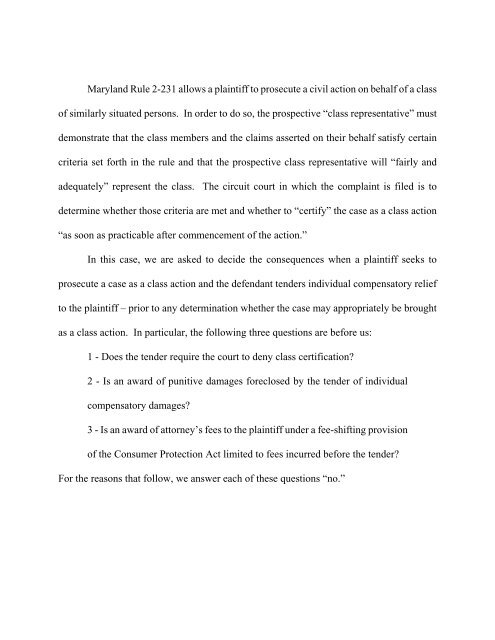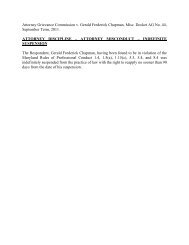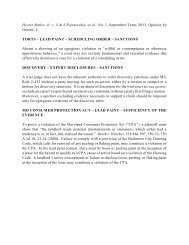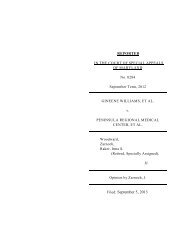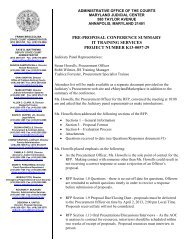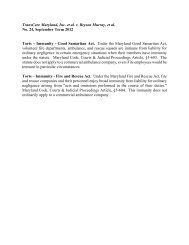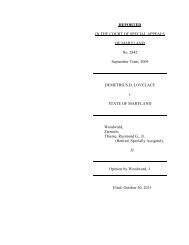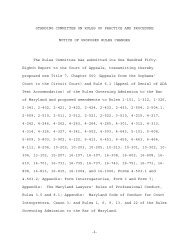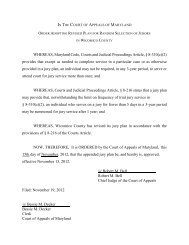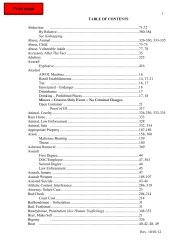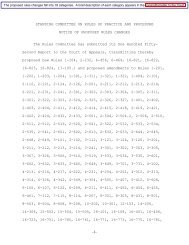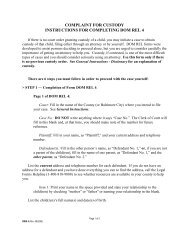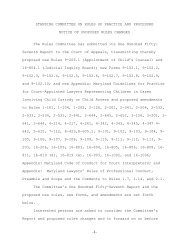Anthony M. Frazier v. Castle Ford, Ltd., f/k/a ... - Maryland Courts
Anthony M. Frazier v. Castle Ford, Ltd., f/k/a ... - Maryland Courts
Anthony M. Frazier v. Castle Ford, Ltd., f/k/a ... - Maryland Courts
Create successful ePaper yourself
Turn your PDF publications into a flip-book with our unique Google optimized e-Paper software.
<strong>Maryland</strong> Rule 2-231 allows a plaintiff to prosecute a civil action on behalf of a class<br />
of similarly situated persons. In order to do so, the prospective “class representative” must<br />
demonstrate that the class members and the claims asserted on their behalf satisfy certain<br />
criteria set forth in the rule and that the prospective class representative will “fairly and<br />
adequately” represent the class. The circuit court in which the complaint is filed is to<br />
determine whether those criteria are met and whether to “certify” the case as a class action<br />
“as soon as practicable after commencement of the action.”<br />
In this case, we are asked to decide the consequences when a plaintiff seeks to<br />
prosecute a case as a class action and the defendant tenders individual compensatory relief<br />
to the plaintiff – prior to any determination whether the case may appropriately be brought<br />
as a class action. In particular, the following three questions are before us:<br />
1 - Does the tender require the court to deny class certification?<br />
2 - Is an award of punitive damages foreclosed by the tender of individual<br />
compensatory damages?<br />
3 - Is an award of attorney’s fees to the plaintiff under a fee-shifting provision<br />
of the Consumer Protection Act limited to fees incurred before the tender?<br />
For the reasons that follow, we answer each of these questions “no.”


